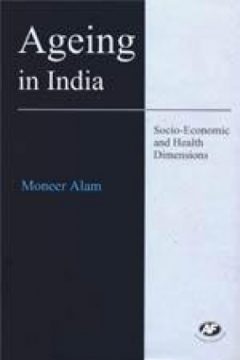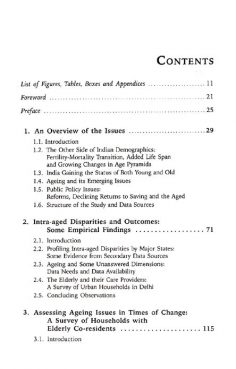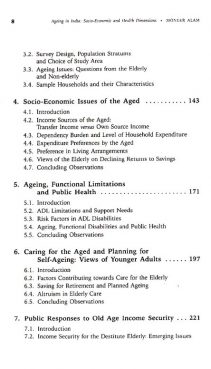This study essentially draws upon Indian conditions and data for analysing ageing and a few of its more critical dimensions involving socio-economic, health and public policy aspects, it may well be argued that each of these dimensions remains equally, if not more, important for many of the developing countries with transitioning demography (declining fertility and life prolongation) and liberalising economy (growing privatisation and pro-market reforms) rendering several non-market institutions void. From a thorough empirical review of the Indian situation using both the primary and secondary data sources, it has been observed that a bulk of the aged may not be able to withstand the unfolding economic realities either in India or elsewhere: they are socially at a loss because of their poor past, economically weak because of serious poverty issues, physically frail and suffer from functional dependence. They are also losing because of erosion in traditional familial values. Further, the non-elderly adults are yet to realise the need for planned ageing. The study tries to build the argument that many of these issues have not been fully understood while framing public responses to ageing. The upcoming concepts underlying ‘elderly involvements in development’ or ‘healthy and active ageing’ may not therefore hold true for many. The worst affected are the elderly women.
Ageing in India: Socio-Economic and Health Dimensions
In stock
Free & Quick Delivery Worldwide
Bibliographic information
Title
Ageing in India: Socio-Economic and Health Dimensions
Author
Edition
1st ed.
Publisher
ISBN
8171885357
Length
288p., Tables; Figures; References; Index; 23cm.
Subjects









There are no reviews yet.